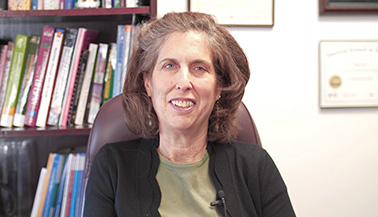News
Empowering Well-being: A Celebration of Asian American Pacific Islander Voices in Health
May 15, 2024
For Asian American Pacific Islander (AAPI) Heritage Month, Stephanie Wu Ho (M.S. ’93) talks about the contributions of the AAPI community to healthcare and how to celebrate and embrace their health and wellness traditions.
In observance of Asian American and Pacific Islander (AAPI) Heritage Month, we celebrate the contributions of AAPI communities to health and wellness. As a health and wellness coach with a background in Asian American culture, I am particularly passionate about highlighting the unique perspectives and practices that AAPI communities bring to the table.
Many traditional Asian medical practices, like acupuncture and traditional Chinese medicine (TCM), emphasize a holistic approach to well-being. These methods focus on preventative care, dietary balance, and achieving harmony between the mind, body, and spirit. As a wellness coach, I find immense value in incorporating these principles into my practice.
Growing up in China food wasn’t just sustenance; it was a cornerstone of family traditions and cultural identity. Understanding the importance of mindful eating and the role of specific ingredients in maintaining health is a valuable asset I bring to my coaching sessions. For instance, many Asian cultures emphasize the use of herbs and spices with medicinal properties, like ginger for inflammation or turmeric for its antioxidant properties.
Beyond physical health, AAPI communities have rich traditions for promoting mental and emotional well-being. Practices like tai chi and mindfulness meditation have gained widespread popularity for their effectiveness in reducing stress and anxiety. As a coach, I often recommend mindfulness techniques like breathing exercises or guided meditation to my clients.
However, the AAPI experience in health and wellness is not without its challenges. AAPI communities face unique barriers to accessing healthcare, including language difficulties and cultural insensitivity. There’s also a historical underrepresentation of AAPI professionals in the healthcare field. It’s crucial to address these disparities and ensure culturally competent care for all.
This AAPI Heritage Month, let’s celebrate the diverse tapestry of health and wellness traditions within the AAPI community. We can achieve this by:
- Supporting AAPI healthcare professionals: Advocate for increased representation and celebrate the achievements of AAPI doctors, nurses, and wellness practitioners.
- Promoting cultural competency in healthcare: Encourage healthcare providers to undergo training on cultural sensitivity and the specific needs of AAPI communities.
- Embracing holistic wellness practices: Explore and integrate traditional Asian medical practices like Ayurveda and TCM into mainstream wellness approaches.
By recognizing and celebrating the contributions of AAPI communities, we can foster a more inclusive and effective healthcare landscape for all. As a wellness coach, I am committed to using my own background and knowledge to empower individuals to embrace a holistic approach to well-being, drawing inspiration from the rich traditions within the AAPI community.




